
Front_Office_Operations
.pdf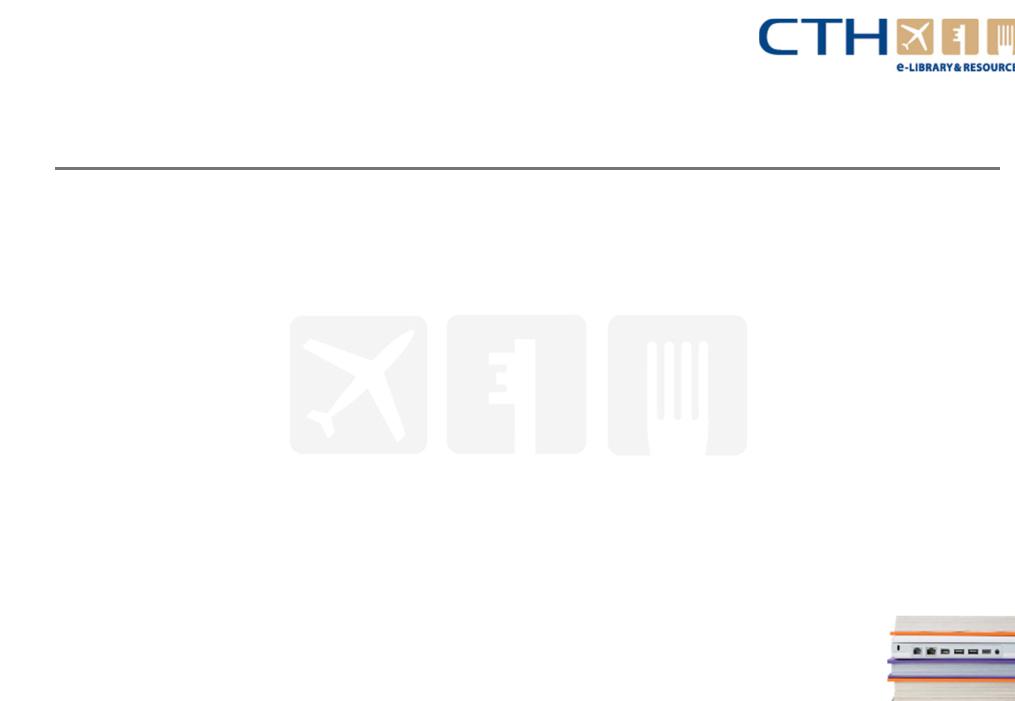
Chapter 3 – Check-in procedures
Receiving and checking-in guests
1.4 Room allocation
If a specific room has not yet been allocated, the receptionist may need to check on room status
(using various charts, discussed later) and allocate a room. Room status documents show which rooms are occupied, which are reserved, which are currently being worked on by housekeeping or maintenance, and which are available for immediate occupation. Available rooms can then be allocated, according to room availability - and guest preference.
When allocating rooms:
●Priority (i.e. allocation of the best rooms of a given grade or rate) should be given to VIPs and major clients, regulars (loyal returning guests), earlier bookings and longer stays.
●Priority should be given to the requests of guests with special needs (e.g.. for accessibility for the disabled).
●Specially requested rooms should be flagged as requested or reserved in advanced reservation and room status charts, so that they aren't let to someone else by mistake.
www.cthresources.com |
Page 161 |
|
www.cthawards.com |
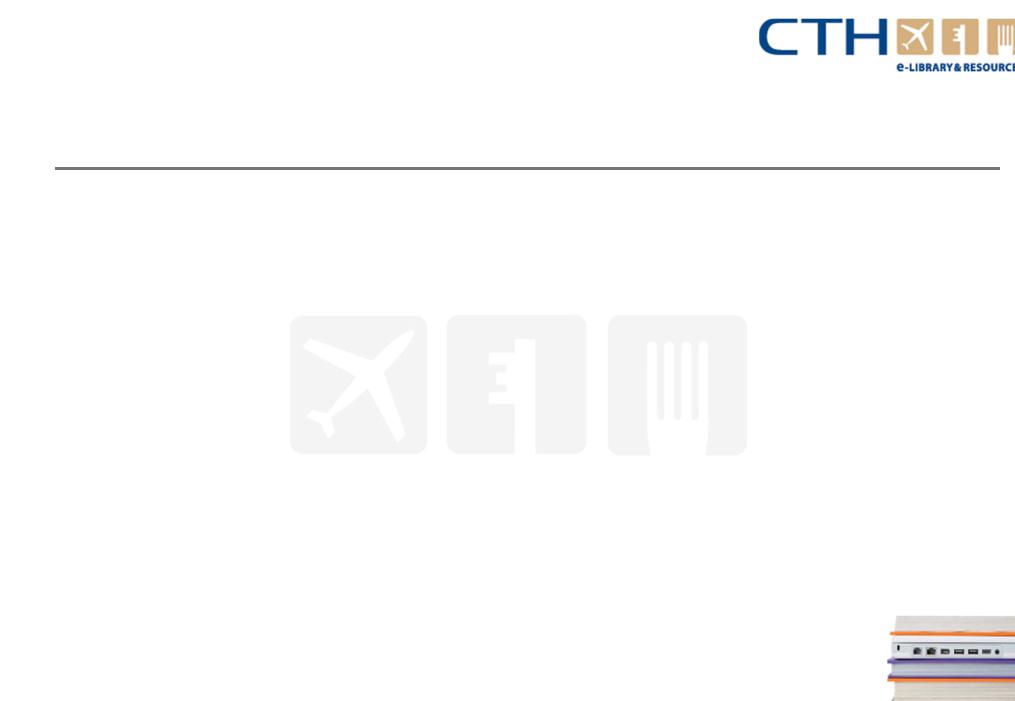
Chapter 3 – Check-in procedures
Receiving and checking-in guests
1.4 Room allocation continued…
When allocating rooms:
●A certain number of the 'better' (preferred) rooms might be 'held back', where possible, to allow for special requests on check-in.
●Computers may be used to allocate non-requested rooms randomly or in rotation, so that all rooms are used equally over time (and available for maintenance on rotation). Computerised systems may also be used to select the best available room for a given set of parameters (rate, room type, guest preferences and yield management).
www.cthresources.com |
Page 162 |
|
www.cthawards.com |
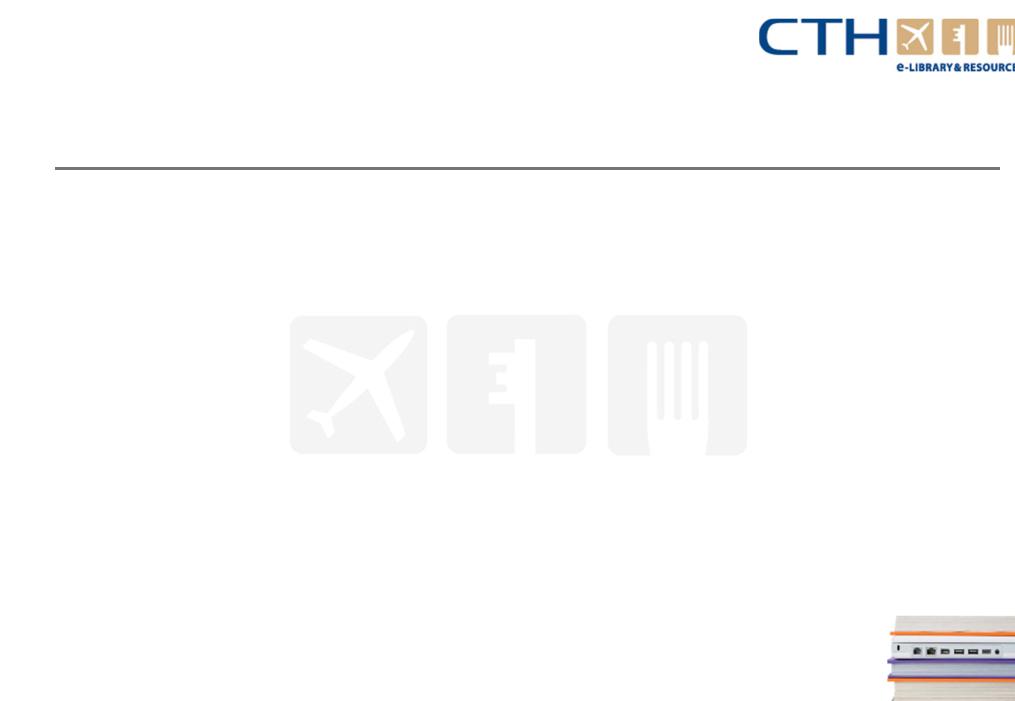
Chapter 3 – Check-in procedures
Receiving and checking-in guests
1.4 Room allocation
Early check-ins - If a guest is checking-in earlier than expected, there may be no rooms ready for occupation - or the pre-allocated/requested room may not yet be vacated by an outgoing guest, or cleaned for re-Ietting. In such a case, the reception should:
●Understand that this situation is frustrating for guests, and make every effort to make them feel welcomed and reassured that they will be given access to a room as soon as possible.
●Offer an alternative room or room type to the guest, if one is ready to occupy immediately.
●Register the guests, inform them, that their room is not yet available with an apology. Offer them the opportunity to put their luggage into storage & inform that it will be taken to their room as soon as it is available. Direct guests to places where they can wait comfortably and/or access refreshments and entertainments: give them a time to return to reception to collect their room key, or arrange for them to be informed.
●Contact housekeeping to put a 'rush'/priority on preparation of the allocated room, if it has
been vacated.
www.cthresources.com |
Page 163 |
|
www.cthawards.com |

Chapter 3 – Check-in procedures
Receiving and checking-in guests
1.5 Booking-out or 'walking' the guest
The hotel may have deliberately overbooked some room types, in order to minimise its losses from noshows, cancellations and shortened stays. So what happens if a guest turns up to check-in, and there are no rooms available? This is a tricky situation, because the guest has a genuine complaint against the hotel, and will probably be very displeased.
The reservation clerk should have pre-planned for this situation. First, it needs to be confirmed as accurately as soon as possible, how many rooms/guests have been double-booked. The arrivals list should be double checked: might there have been a cancellation or room change that hasn't been recorded, so that there is a room available for the guest? Might rooms be 'freed up' in some other way (e.g.. by offering incentives to group travellers to share a room, or using rooms reserved for staff)?
The second step will be to prioritise bookings, so that the least possible damage will be done to the hotel by re-Iocating guests. The principle of 'yield management' (maximising occupancy and revenue) as well as guest convenience and hotel marketing - suggests that you should relocate guests on the basis of:
PTO
www.cthresources.com |
Page 164 |
|
www.cthawards.com |
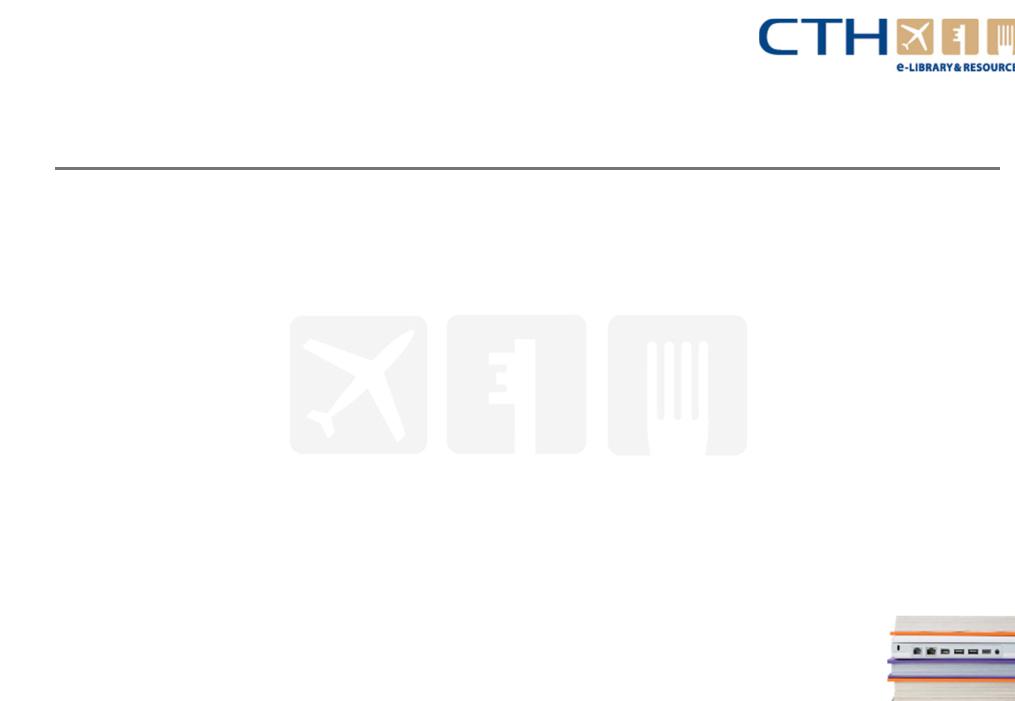
Chapter 3 – Check-in procedures
Receiving and checking-in guests
1.5 Booking-out or 'walking' the guest continued …
●Shortest reservation (e.g.. one-night) first, since these guests will not be as badly affected as guests who had reserved longer stays - and the hotel will not lose the longer-stay revenue to another hotel!
●First-time (i.e. non-repeat, non-regular) guests first, since these guests may not have a fixed preference, and the hotel will not be risking displeasing a loyal guest in whom it already has an investment.
●Overseas guests before domestic guests, where these are less likely to represent potential repeat business (i.e. not guests from the overseas office of a major business client!).
Every effort should be made to minimise (a) the inconvenience and loss to the guest and (b) the damage to the hotel's reputation, as a result of relocation.
●The handling of the booking-out may be referred to the senior receptionist or duty manager, so that disgruntled guests feel that the matter is being taken seriously (and so that a tricky situation can be handled by the most qualified person).
www.cthresources.com |
Page 165 |
|
www.cthawards.com |
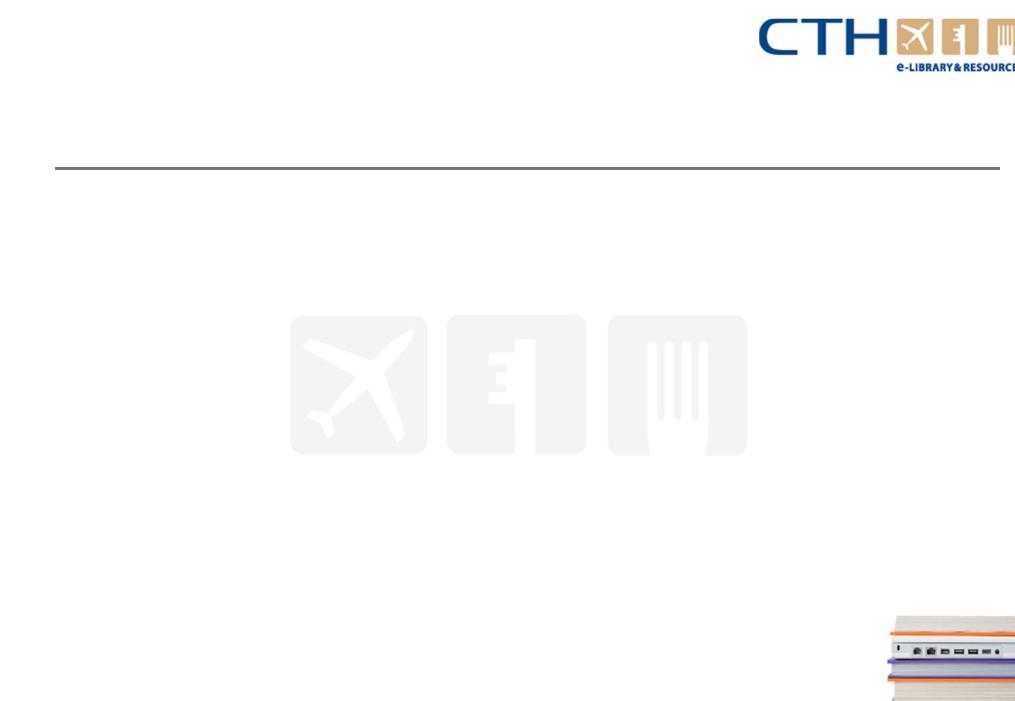
Chapter 3 – Check-in procedures
Receiving and checking-in guests
1.5 Booking-out or 'walking' the guest continued …
●Guests should be relocated in a similar grade of hotel, similar grade and type of room and at a similar rate, ideally, within another hotel in the same group. If better terms or a better grade of accommodation can be found, for the same terms, this may help to 'soften the blow' for the relocated guest.
●The hotel should offer to pay the expenses associated with the relocation: the cost of telephone calls, transport to the other hotel, excess room charges (if the accommodation found is at a higher rate) and so on. It may also offer assistance with transport, e.g.. if there is a shuttle bus service.
●The hotel may also offer compensation to guests for being booked-out: e.g.. vouchers for a subsequent stay, payment for the first nights stay in the other hotel and so on. Dix & Baird (Front Office Operations) argue that even after meeting all the costs of booking-out, 'it is still in the interests of the hotel to overbook by a sensible margin, to achieve the objective of a "full house”.
Meanwhile, the arrivals list and other records will have to be amended to show that the guest has been booked-out. (The switchboard's guest index, for example, will have to show where the guest
has been booked out to, so that callers and messages can be directed to the correct hotel.)
www.cthresources.com |
Page 166 |
|
www.cthawards.com |

Chapter 3 – Check-in procedures
Receiving and checking-in guests
1.6 Checking the method of payment
●It is usual practice at this point to:
●Confirm with the guest what the room rate will be, and what it includes.
●Ascertain or confirm and record the method of payment by which the guest intends to settle the bill, and to confirm that the proposed method is accepted by the hotel.
●Confirm the foreign currencies accepted by the hotel, and exchange rates. applied (where relevant).
●Confirm and record any billing arrangements made, if a company or travel agent Is settling the account (e.g.. collecting agency vouchers and opening a bill for 'extra' charges).
●Confirm any deposit or pre-payment already made, and ensure that a credit is posted to (shown on) the guests account, which is opened at this point.
●Take steps (if guests are unknown to the hotel and the account has not been pre-paid) to
ensure that the guest will be able to pay the account on demand.
www.cthresources.com |
Page 167 |
|
www.cthawards.com |
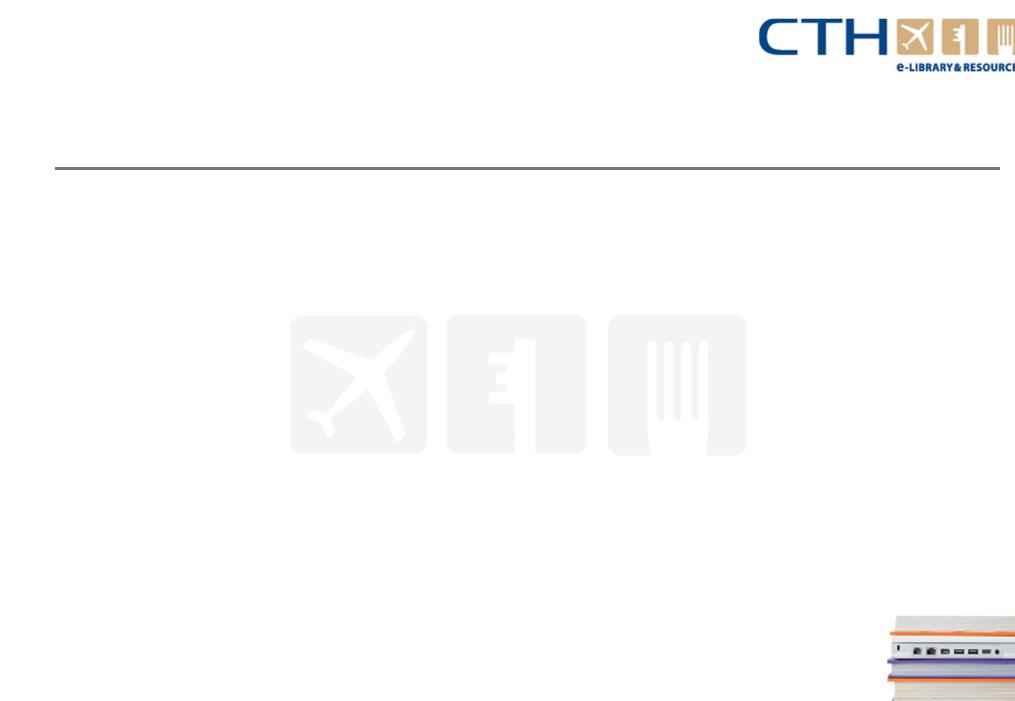
Chapter 3 – Check-in procedures
Receiving and checking-in guests
1.6 Checking the method of payment continued…
The hotel is entitled, under common law, to request that a guest pays a reasonable amount in advance (there is no obligation to offer credit) - and although this needs to be handled tactfully, to avoid offence, most guests will be amenable to complying with hotel policy.
In most hotels, it is a standard procedure to request some form of deposit, pre-payment or guarantee from 'chance guests' who walk in without a reservation. The receptionist may refer such registrations to the duty manager who may, if any suspicion is aroused, use the guest's registration particulars to conduct a credit check. A deposit would typically include one night’s room charge plus an added amount to cover extras (refundable if not spent).
Even where a guest has made a reservation, it is standard procedure to request a copy or Imprint of the guest's credit card (if available) for the hotel's records and as a guarantee of payment. The credit card may even be 'swiped' on arrival so that the hotel receives pre-authorisation from the credit card company for the authorised amount: it is effectively 'reserved' by the credit card company for the transaction. If the bill goes over this amount, a new authorisation may be required - while if it is less, the original transaction can be invalidated and the lesser sum put through instead.
www.cthresources.com |
Page 168 |
|
www.cthawards.com |
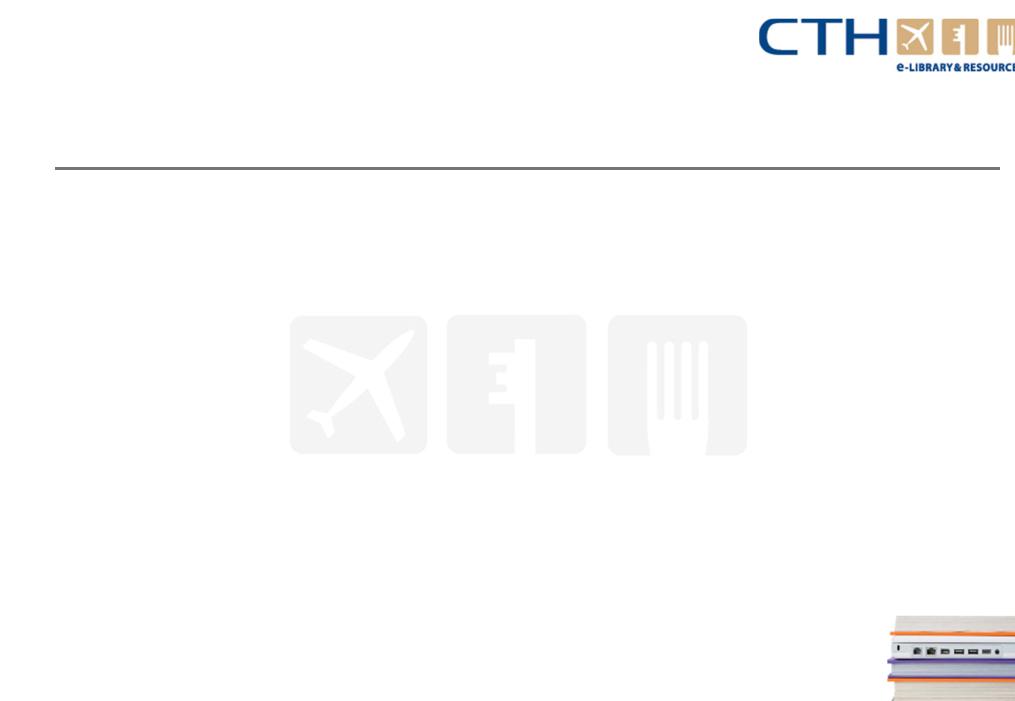
Chapter 3 – Check-in procedures
Receiving and checking-in guests
1.6 Checking the method of payment continued…
If the hotel has any further doubts about a guest's ability to pay, the receptionist may ask for prepayment (e.g.. to allow a cheque to clear); or state that it is the hotel's policy to impose a credit limit, and to request an 'interim' or 'part' payment once the guest's account reaches that limit (preventing him from running up a very large bill). Obviously, this will have to be handled with great tact, and may be delegated to the duty manager if one is available.
www.cthresources.com |
Page 169 |
|
www.cthawards.com |
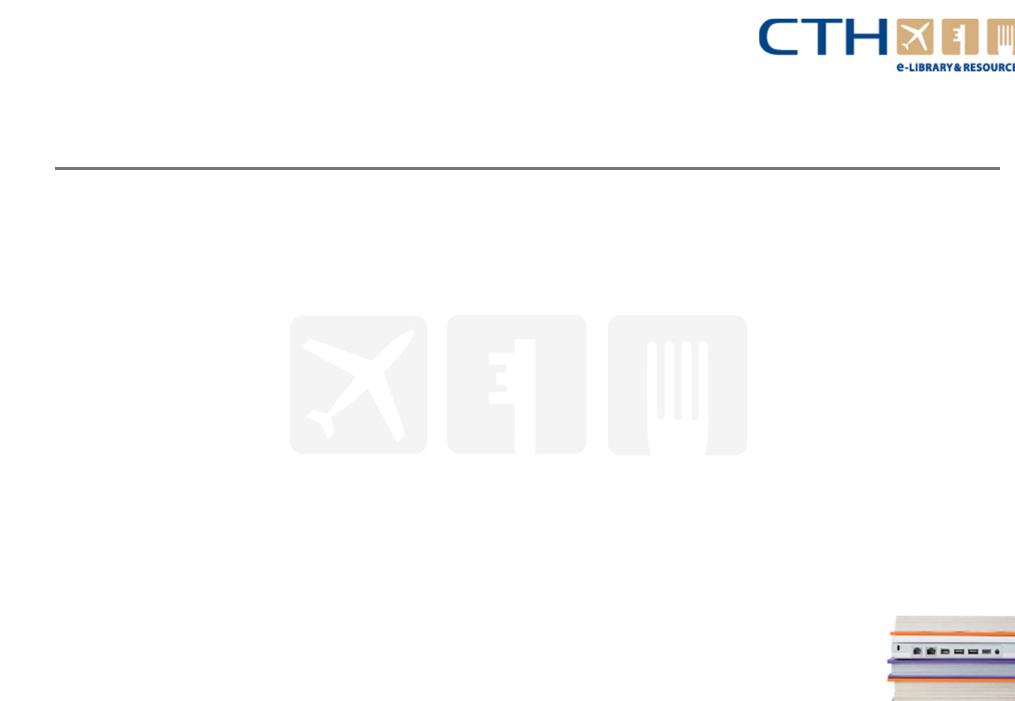
Chapter 3 – Check-in procedures
Receiving and checking-in guests
1.7 Issuing keys
Once registration details are complete and a room allocated, the receptionist can issue a key and/or key card to the guest, explaining its use if necessary.
www.cthresources.com |
Page 170 |
|
www.cthawards.com |
